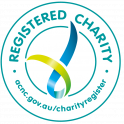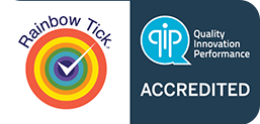Seeking family dispute resolution in Melbourne is a way to separate smarter. It is more cost-effective than going to Court and the process is faster. Besides, no one wins in the Family Court system, and to take the matter to court, you need to demonstrate that you have attempted mediation first.
In this article we explore a commonly used process for family dispute resolution.
This includes:
- the assessment
- pre-mediation stage
- mediation stage
- putting the child first
- agreeing on parenting plans
- taking the matter to Court
- finding a family dispute resolution service in Melbourne.
Armed with this information, you will be empowered to stay on top of your mental health during separation.
The assessment stage of family dispute resolution in Melbourne
When you first enquire about family dispute resolution in Melbourne, the practitioner will assess if your matter is appropriate to proceed to mediation, as required by the Family Law Act (1975). (It’s important to know that the law requires that practitioners assess appropriateness for mediation throughout the process. If it is not appropriate to proceed, the Act requires the reason to remain confidential)
If the matter is appropriate for mediation to proceed, the assessment will take place in person or via video or telephone. During the assessment, the practitioner will also assess which format will work best for your matter to ensure all participants can effectively participate and maximise the chances of reaching an agreement. With this in mind, mediation may proceed in shuttle format (individually in separate rooms) or joint format (both parents in the same room).
The pre-mediation stage
If it is appropriate for your matter to proceed to mediation, you will have a pre-mediation review. This is normally where the practitioner calls you for a brief 30-minute one-on-one appointment to prepare you for the session, talk you through the process and answer any questions you may have.
In pre-mediation you can share with the practitioner what you would like to discuss with the other parent and explore what arrangements you think will be in the children’s best interests going forward.
The mediation stage of family dispute resolution
It is common for the pracitioner to ask for your agenda items at the commencement of mediation. These are topics you would like to discuss with the other parent and can include matters such as:
- care arrangements
- arrangements for special occasions
- any other issues that you feel needs to be addressed with the other parent in relation to the children.
Agenda items are only tabled for discussion if both parties are willing to discuss them or if there is willingness to hear what the other parent has to say about a particular issue.
During mediation, there is no pressure for either party to respond or reach an agreement. The practitioner will assist with exploring options and helping parents to consider proposals based on their family’s needs and their children’s age and stage of development.
Working through agenda items may take more than one 2-hour session.
Putting your children first
Though the practitioners do not tell you what to do, it is always best to put the interests of the child first. This can make it easier for both parties to come to an agreement, because they are no longer simply focussing on their own needs.
As part of the preparation for mediation, each parent is encouraged to participate in an online Child in Focus session. Child in Focus sessions help parents focus on their children’s needs and understand the family dispute resolution process.
Agreeing on parenting plans
The process of family dispute resolution in Melbourne can include the practitioner drafting a parenting plan after the mediation sessions. The plan becomes active when signed and dated by both parents.
Practitioners can help parents negotiate the written parenting agreement, review any existing arrangements or discuss important issues in relation to the children such as schooling, interstate/overseas travel, medical care, etc.
The parenting plan is not a legally binding document in the way a court order or consent order is. A lawyer can give advice about how to turn a parenting plan into consent orders.
Parenting plans can be adapted to suit your families’ circumstances and meet your children’s needs. They will often include:
- the time children will spend and the communication they will have with each parent and significant others who are important to them, such as grandparents and extended family
- the activities the children will do with each parent (e.g., sports, homework, music) and their participation in extracurricular activities
- arrangements for school holidays and special occasions, such as birthdays, religious or cultural events, graduation days
- how parents will communicate about the children’s day-to-day needs and make decisions about longer term issues
- an agreed process for reviewing the parenting plan as the children get older and their needs change
- how parents will resolve disputes going forward and ensure the children are protected from conflict.
Learn more by downloading the Parenting Plans – Fact sheet.
What if the matter needs to go to Court?
In some cases, a parent may want to take the matter to Court.
This can happen:
- if the other parent does not want to participate in family dispute resolution
- if family dispute resolution mediation sessions are not the right forum for your matter
- if you are unable to reach an agreement through the family dispute resolution process
If this is the case, the practitioner can issue a s.60i certificate which can be used to file a court application. For property mediation, letters of attendance can be provided.
Where can you find family dispute resolution in Melbourne?
Better Place Australia Family Dispute Resolution services operate across Melbourne and regional Victoria. A practitioner will meet with you to discuss your matter, gather some information about you, your children and your relationship with the other parent.
If appropriate to do so, they will invite the other parent to participate. If the other parent is willing to engage in the service, the practitioner will also have a separate one-on-one appointment with them.
You can access Better Place Australia Family Dispute Resolution in Melbourne by telephone and video appointments or face-to-face, at the following Better Place Australia sites:
- Cheltenham
- Croydon
- Narre Warren
- Oakleigh
- Sale (Mondays Only)
- Traralgon
- Wyndham Vale
FDR practitioner, Eliza, shares a snapshot of the process at Better Place Australia
Get Support
Please make an enquiry if you would like to book an appointment for one of our services. Alternatively, you can live chat with us during business hours.






